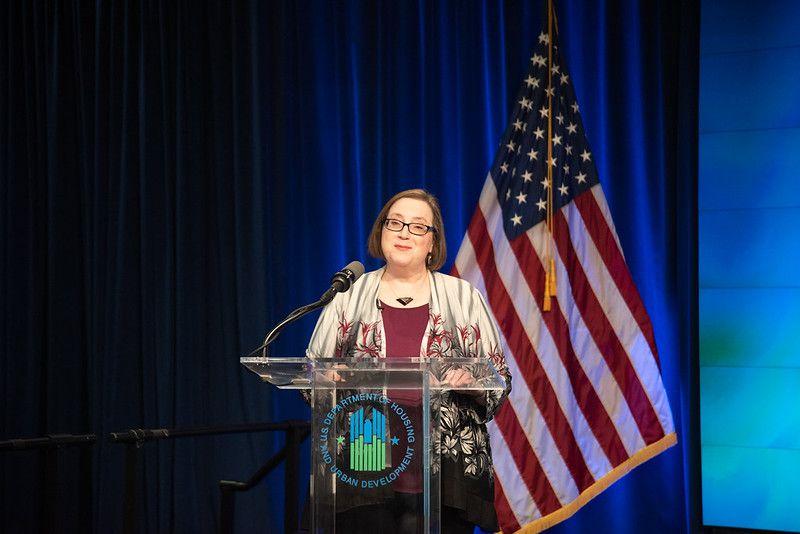
FHA vs. Conventional Loan: Which is Right for You in 2025?
Trying to decide between an FHA vs. conventional loan? Our guide breaks down the key differences, pros, and cons of each to help you choose the best mortgage for your financial needs in 2025.

If you’re planning to buy a home, you’ve likely heard the terms FHA loan and conventional loan. These are two of the most popular options for home financing, but understanding which is right for you can be confusing. This guide breaks down the differences between FHA and conventional loans, highlighting their pros, cons, and suitability for different types of borrowers. By the end, you’ll have a clearer idea of which mortgage could fit your financial situation best.
What is an FHA Loan?
The Federal Housing Administration (FHA) loan is a government-backed mortgage designed primarily for first-time homebuyers or those with less-than-perfect credit. FHA loans are known for their more flexible qualification standards, which can make homeownership more accessible. These loans are offered through private lenders, but they’re insured by the FHA, providing lenders with added security.
Key Features of an FHA Loan
Lower credit score requirements – Typically, you need a minimum credit score of around 580 to qualify, though some lenders may allow scores as low as 500 with a higher down payment.
Low down payment – FHA loans require as little as 3.5% down, making them ideal for buyers who haven’t saved up a large down payment.
Mortgage insurance – FHA loans come with mandatory mortgage insurance premiums (MIP) that are paid upfront and annually, which helps protect lenders against default but adds to the overall cost.
What is a Conventional Loan?
Conventional loans are not backed by the government and are typically provided by private lenders such as banks, credit unions, and mortgage companies. These loans generally require higher credit scores and a more substantial down payment but often come with fewer fees and a range of flexibility in loan terms.
Key Features of a Conventional Loan:
Higher credit score requirements – Most conventional loans require a credit score of at least 620, though higher scores can help you secure better rates.
Down payment options – While you might need a down payment of 5%-20%, some conventional loans, especially for first-time buyers, allow for as little as 3%.
Mortgage insurance – Private mortgage insurance (PMI) is required if your down payment is less than 20%. Unlike FHA loans, PMI can be removed once you reach 20% equity in your home.
FHA vs. Conventional Loan: Key Differences
| Feature | FHA Loan | Conventional Loan |
|---|---|---|
| Credit Score | 500-580+ | 620+ |
| Down Payment | 3.5% (with a score of 580+) | 3%-20% |
| Mortgage Insurance | Mandatory for the loan's life | Can be removed after 20% equity |
| Loan Limits | Varies by location (up to $472,030 in 2024) | Typically up to $726,200 in high-cost areas |
| Flexibility | Great for lower credit scores; more lenient | Better for higher credit, offers more options |
Pros and Cons of FHA Loans
Pros:
- Easier to qualify for – FHA loans are forgiving when it comes to credit history, making them ideal for first-time buyers.
- Lower down payment – Only 3.5% down is required for those with a credit score of 580 or higher.
- Flexible debt-to-income (DTI) ratio – FHA allows for a higher DTI ratio, making it easier for those with existing debt to qualify.
Cons:
- Mortgage insurance requirement – FHA loans require both upfront and annual mortgage insurance premiums, which can add to your costs.
- Loan limits – There’s a cap on FHA loans that varies by region, potentially limiting buying options.
- Appraisal standards – FHA properties need to meet strict guidelines, which could result in repairs or inspections before approval.
Pros and Cons of Conventional Loans
Pros:
- No ongoing mortgage insurance – PMI can be removed once you reach 20% equity, helping reduce your monthly payment over time.
- Higher loan limits – Conventional loans often allow higher loan amounts, especially in high-cost areas.
- More options – With conventional loans, you can choose between fixed and adjustable rates, varying loan terms, and down payment flexibility.
Cons:
- Stricter credit and income requirements – Conventional loans usually require a higher credit score and a lower DTI ratio.
- Larger down payment – While low-down-payment options exist, conventional loans often require more upfront than FHA loans.
- Less flexibility with credit issues – Conventional loans don’t offer the same leniency as FHA for lower credit scores or past financial issues.
FHA vs. Conventional Loan: Which One is Right for You?
Choose an FHA Loan if: You’re a first-time homebuyer or have a lower credit score. FHA loans are also ideal for buyers who have limited savings for a down payment or need a more lenient DTI requirement.
Choose a Conventional Loan if: You have a higher credit score, are comfortable making a larger down payment, and prefer a loan that offers flexibility in terms of PMI removal and loan amount limits.
Final Thoughts: FHA vs. Conventional Loan
When it comes to FHA vs. conventional loan decisions, the right choice depends on your unique financial situation, credit score, and down payment savings. FHA loans offer accessibility and flexibility, making them perfect for first-time buyers or those with lower credit scores. On the other hand, conventional loans offer a broader range of options, particularly for borrowers with higher credit and more savings upfront.
If you’re still unsure, talking with a mortgage lender or financial advisor can help you weigh your options and find the best fit. Remember, the right loan can save you thousands over time, so it’s worth taking the time to understand which one aligns with your financial goals.
FAQs about FHA vs. Conventional Loans
1. Which loan is easier to qualify for, FHA or conventional?
FHA loans are generally easier to qualify for, especially if you have a lower credit score or limited down payment funds.
2. Can I switch from an FHA loan to a conventional loan?
Yes, homeowners can refinance an FHA loan into a conventional loan, often to remove mortgage insurance once they reach 20% equity.
3. Do FHA loans or conventional loans have better interest rates?
FHA loans sometimes have lower interest rates than conventional loans, but the best rate depends on your credit profile and the current market.









